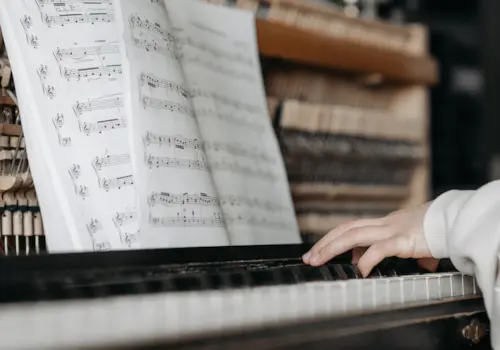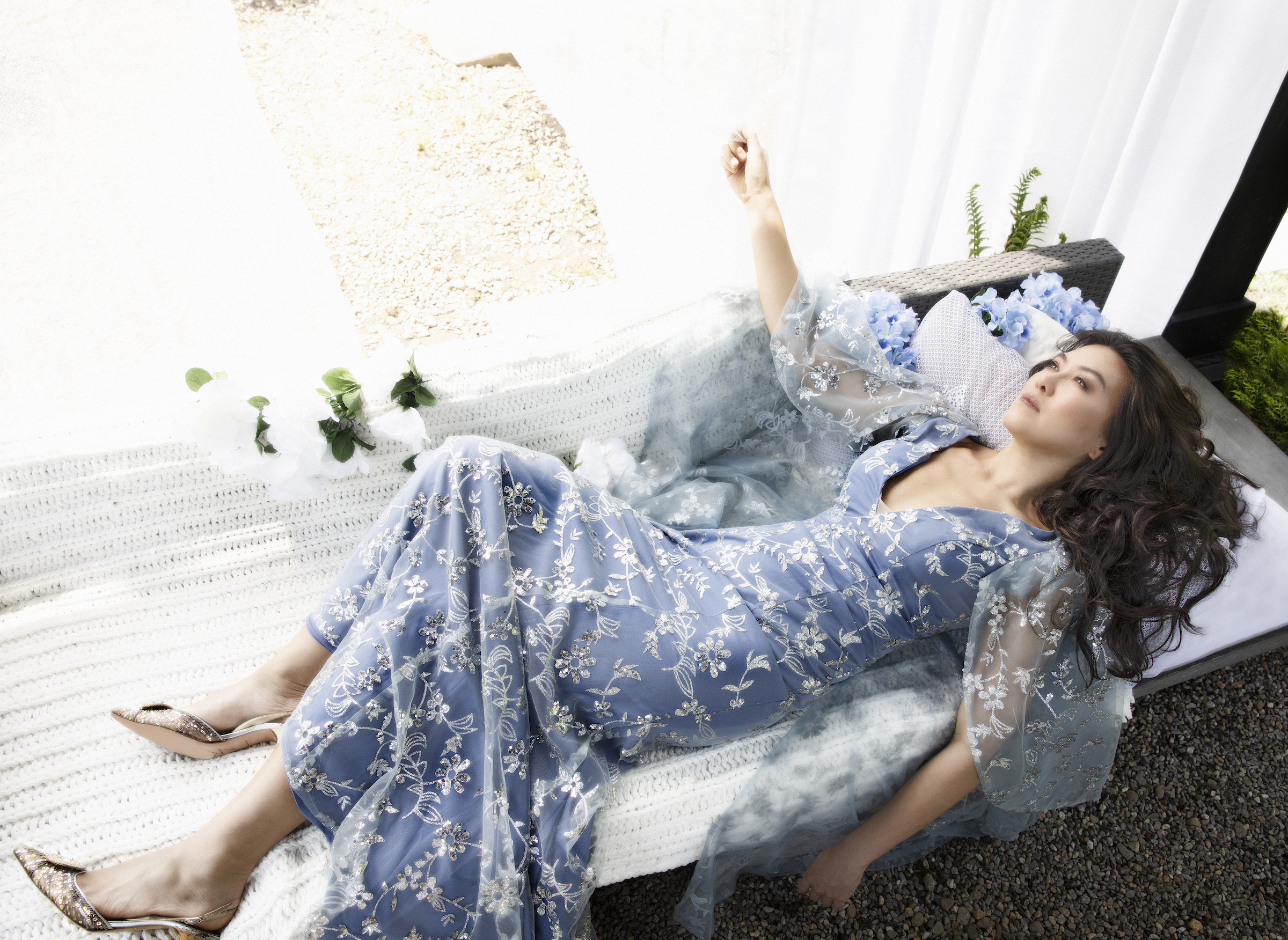Meet the classical pianist who also just happens to be a Vogue-featured fashion designer. Taiwanese-American pianist Weiyin Chen is certainly one of a kind. She speaks to Pianist about her love of the Beethoven Piano Sonatas, the influence of Leon Fleisher on her life, and the link between her fashion and pianist careers
Can you share a little about your musical pedagogy and influences?
My teacher Leon Fleisher had the profoundest influence on my musical and pianistic development. Without him, I wouldn’t be playing the piano today. Richard Goode and Claude Frank each enriched my growth in more ways than I ever imagined.
You have the unique skill and vision of being a fashion designer in addition to a concert pianist. How do these two art forms inform each other and interact?
They have magnified my imagination exponentially, they work synergistically. After my first few designs were created, I began writing my own cadenzas. Accessing the fantastical through designing served as a catalyst for what I was ready to unleash in music.
I see designing as a form of visual/musical composition. Construction, colours, textures, and shapes orchestrate into one unified expressivity, conveyed with style. How I conceive designs is very similar to how I conceptualize scores – design is experienced visually, music is “felt” viscerally. I think this extra dimension of time and rhythm that we can relate to the pulse of our heartbeat is what I find especially powerful in music, it can communicate with our inner most heartstrings that we cannot explain in words.
Weiyin Chen
How did you begin conducting from the piano bench? Does your experience in conducting change your outlook on playing with an orchestra?
The idea of conduct and play has been bubbling in me for quite some time, the champagne bottle finally popped open last year after meeting and performing with the brilliant maestro Eliahu Inbal, who encouraged me to look deeper into music by understanding the art of conducting.
Since then, I have been studying, preparing a few Mozart piano concerti, and experimenting with writing my own cadenzas. These tools allow me to have an all-encompassing approach to interpreting a concerto, and attuning to various instrumental sounds and space has expanded my awareness greatly in my approach to playing with an orchestra. Transmitting the feeling of music to audiences has since carried a multidimensional perspective and meaning to me.
I need to have four sets of ears at once: the pianist, the composer, the conductor, and the audience. Conducting is both very simple and difficult at the same time. It’s pushed me further to define what is “essential” in a composition, finding its message crystallized into its essence.
What does your daily practice routine look like?
It’s important to me that I begin my day first attending to my mind and body. This means some quiet time for reflection, setting intentions for my day and practice, followed by physical exercise, warming up my body and generating a flow of well-being into my day.
When I work, I’m very focused. When I take a break, I allow myself to just be. Staying present is a practice. I view music making as a kind of meditation, one that requires the spirit – physicality and emotions move in synchronicity.

"I can feel Fleisher’s presence when I open the score [for Beethoven's Piano Sonatas]."
Do you find yourself returning to any specific works and/or etudes on a regular basis?
Lately, I’ve been drawn to revisit works that captivated me in my younger years. I feel like my life is made up of blocks of repertoire. Music is a portal; I can access a vivid emotion I experienced back in time. It’s always interesting to look at the same work years later, understanding the distance I’ve travelled with it, seeing and listening from a different angle. It’s a conversation I have with my younger self.
For instance, I made my orchestral debut with the Strauss Burleske in D minor and it’s a work that has its mark in my constellation.
On a larger scale, the complete Beethoven Piano Sonatas are important in my musical life. In my final year working with Fleisher we went through the entire cycle and still to this day I can feel Fleisher’s presence when I open the score, recalling his shared experience delving into this musical bible with Artur Schnabel and tracing back the lineage of the tutelage. Schnabel studied with Leschetizky, Leschetizky studied with Czerny, and Czerny was one of Beethoven’s most known pupils.
If you could give any advice to a pianist beginning their career, what would it be?
In an industry where being “chosen” often seems like the driving wheel to bring about a career, we first have to choose ourselves. Instead of hoping to be chosen, perhaps it is more relevant to find “alignment” – to align oneself with one’s values, passions, visions. You must know who you are. The more you radiate what makes you YOU, the more you attract your people, places and opportunities.
Take a stand. Experiment with different things and interests, it’s equally important to know what’s not for you as well as what is for you. Form your opinions based on your lived experiences and observations. Develop awareness. Be bold. The world needs and wants your uniqueness.
Imagine you’ve been given a magic wand to play (or commission) any concerto, with any orchestra, in any venue, with any conductor. What would you play, with whom, and where?
Grieg Piano Concerto at the Proms with Klaus Mäkelä!
Images: ©Lisa Mazzucco
Find out more about Weiyin Chen here.









